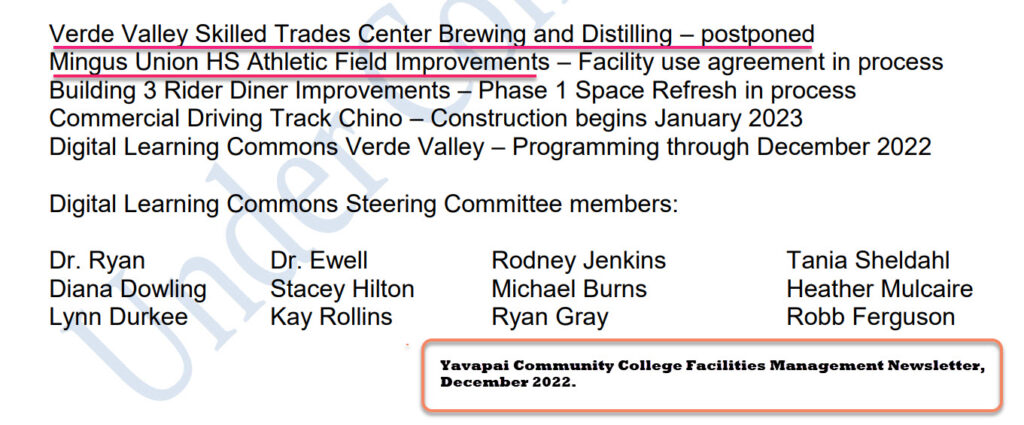Pays at least $200,000 in purchase believed to be from local housing developer; purpose is most likely to build a 40 apartment complex for CTEC faculty and students and construct large electronic sign directing traffic to CTEC
 Highly reliable sources have informed the Blog that Yavapai Community College purchased the 1.15 acres close to the Career and Technical Education Center on 89A going to the Prescott airport for at least $200,000. The sources were not certain but thought the seller was a local developer with whom the College is doing quite a bit of business related to housing.
Highly reliable sources have informed the Blog that Yavapai Community College purchased the 1.15 acres close to the Career and Technical Education Center on 89A going to the Prescott airport for at least $200,000. The sources were not certain but thought the seller was a local developer with whom the College is doing quite a bit of business related to housing.
All indications are that the purpose of the purchase is preparation for the College constructing a 40 apartment complex for CTEC faculty and students and place a large electronic sign directing people to CTEC located at the Prescott airport.
The Blog asked the Community College directly by email to officially confirm the sale price, seller’s name, and purpose but it refused to do so. Instead, it replied that the Blog should review a presentation made to the September 19, 2023, Governing Board by Dr. Clint Ewell, Vice President of Finance and Administrative Services at the College.

A review of the meeting videotape revealed that Dr. Ewell had announced that the College had “closed” on the purchase of the land during his presentation but he did not disclose the price, seller’s name, or purpose of the acquisition. However, one surmises from his presentation that the reason for the purpose was to lay the foundation for constructing a 40 bedroom apartment on the complex for CTEC faculty and students. This possibility was highlighted during his presentation.
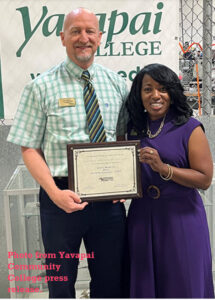
 According to a July 14 article in the Capitol Times by Steven R. Gonzales, Chancellor of the Maricopa County Community College District, two of the three largest semiconductor manufacturers in the world have announced a combined total of nearly $50 billion in new investments in Arizona, enabling the construction of multiple new, expansive manufacturing hubs. (
According to a July 14 article in the Capitol Times by Steven R. Gonzales, Chancellor of the Maricopa County Community College District, two of the three largest semiconductor manufacturers in the world have announced a combined total of nearly $50 billion in new investments in Arizona, enabling the construction of multiple new, expansive manufacturing hubs. ( No explanations were provided prior to the May 2023 budget meeting supporting the sudden decision to increase the size of CTEC, especially considering that the College already possesses 108,000 square feet at that facility. Similarly, no clarifications were given regarding why the specific amount of $10 million was chosen, nor was there any disclosure regarding the portion of funding that might come from state grants. Furthermore, it remained unclear whether the $10 million would be spent regardless of the availability of state funding.
No explanations were provided prior to the May 2023 budget meeting supporting the sudden decision to increase the size of CTEC, especially considering that the College already possesses 108,000 square feet at that facility. Similarly, no clarifications were given regarding why the specific amount of $10 million was chosen, nor was there any disclosure regarding the portion of funding that might come from state grants. Furthermore, it remained unclear whether the $10 million would be spent regardless of the availability of state funding.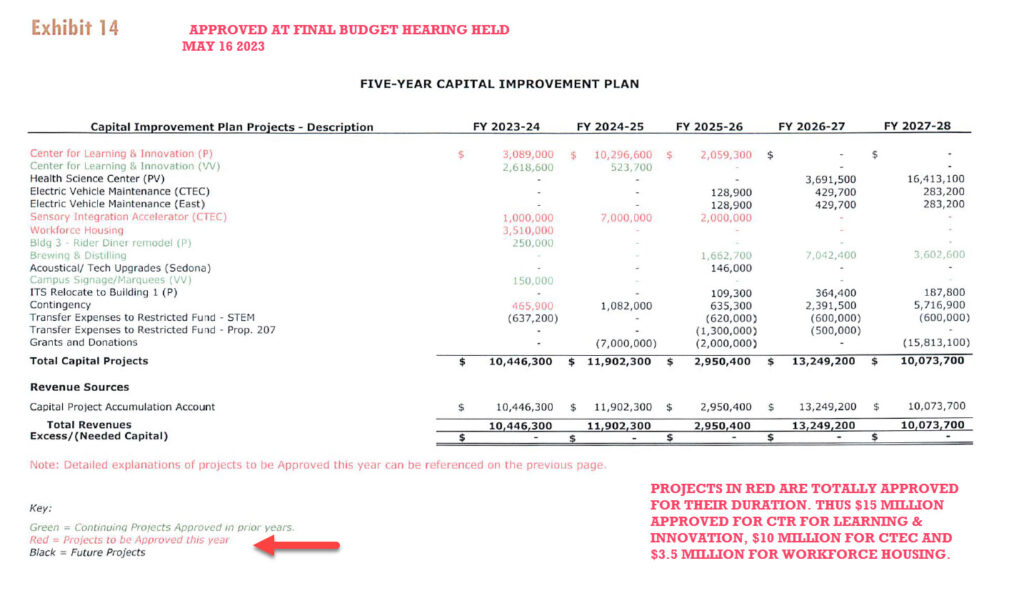
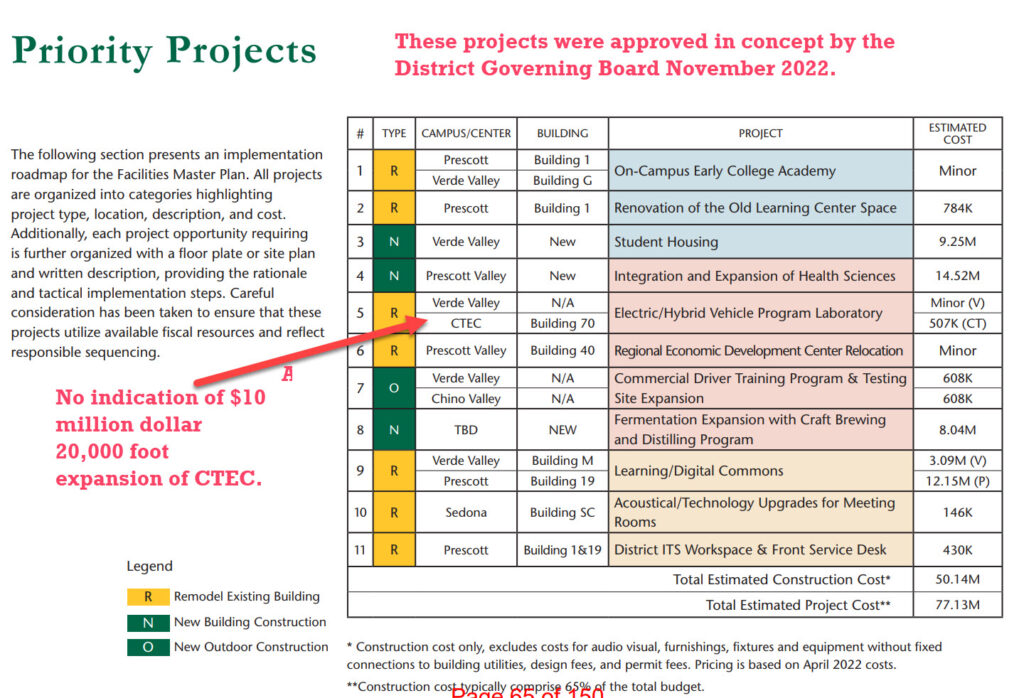
 Community colleges in Arizona are witnessing a rise in programs focused on “workforce accelerators.” This initiative gained momentum with former Governor Doug Ducey, who, on March 31, 2021, joined local elected leaders in Pinal County to inaugurate a cutting-edge advanced manufacturing training center in Coolidge, Arizona. Named Drive48, the facility was described as representing a groundbreaking collaboration among government, industry, and academia, aimed at strengthening Arizona’s workforce training for high-tech jobs.
Community colleges in Arizona are witnessing a rise in programs focused on “workforce accelerators.” This initiative gained momentum with former Governor Doug Ducey, who, on March 31, 2021, joined local elected leaders in Pinal County to inaugurate a cutting-edge advanced manufacturing training center in Coolidge, Arizona. Named Drive48, the facility was described as representing a groundbreaking collaboration among government, industry, and academia, aimed at strengthening Arizona’s workforce training for high-tech jobs.

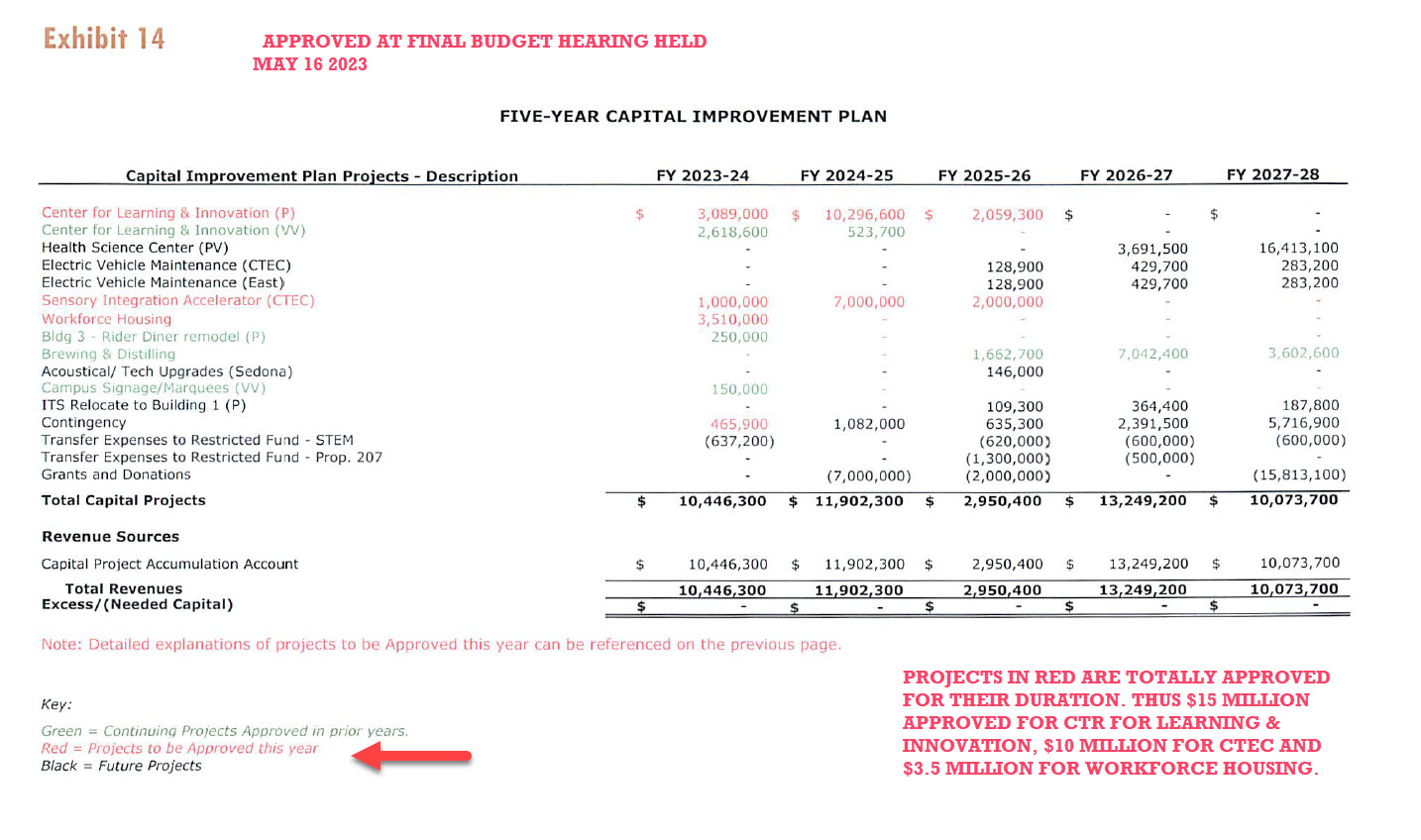
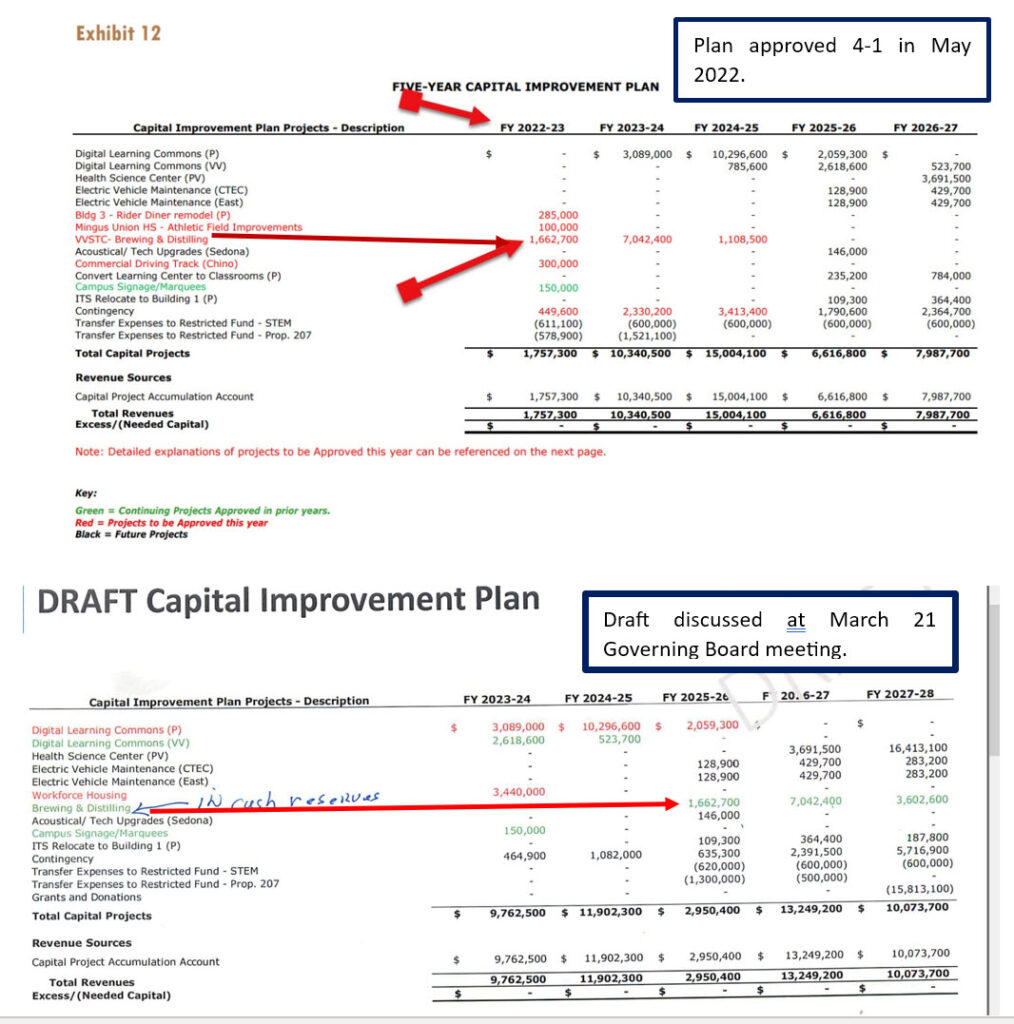
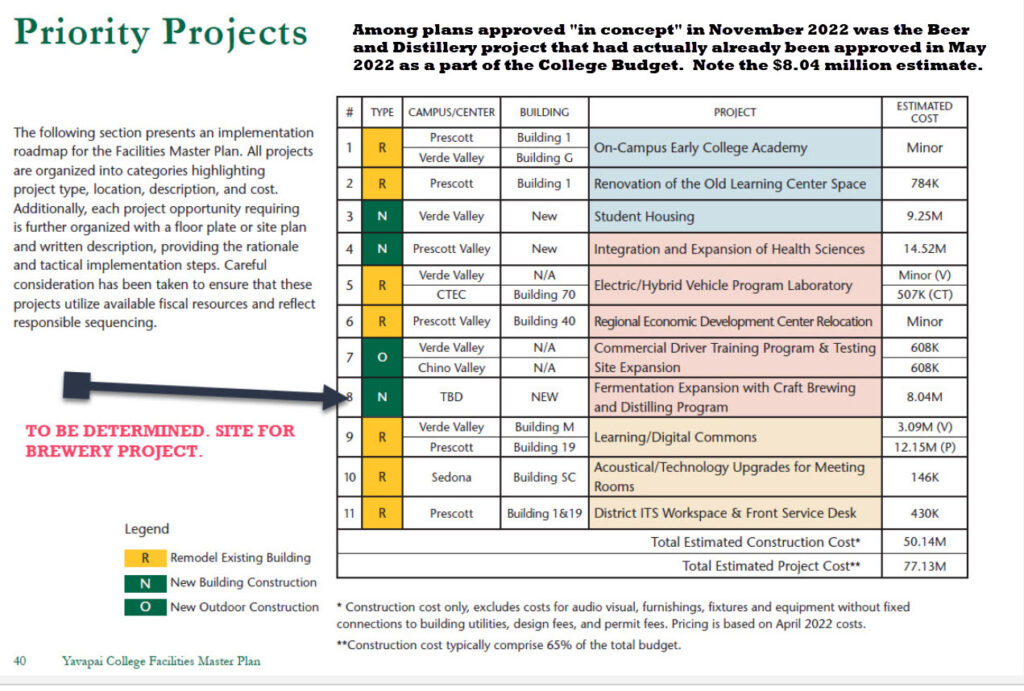
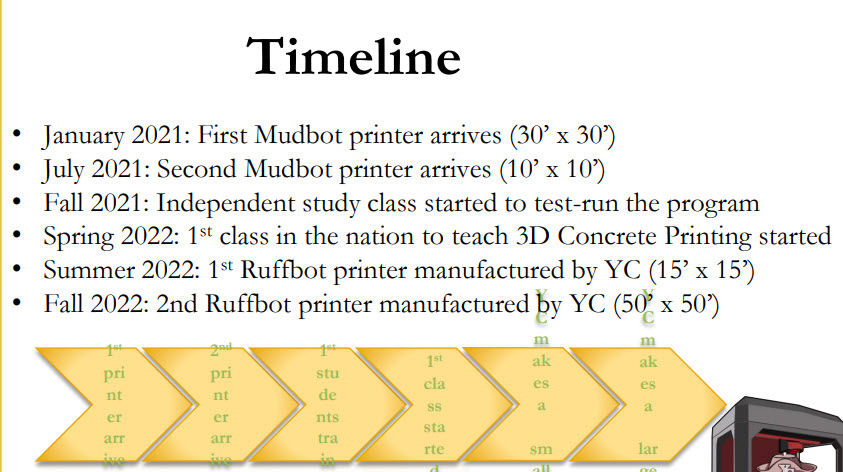
 The exact status of the proposed and approved $8 to $10 million Verde Valley beer brewery project remains unclear. Although the Prescott-based executives who decide major Community College issues for the Verde Valley have made no formal announcement, the postponement notice appears in the October and December Community College Facilities Newsletter. (See below)
The exact status of the proposed and approved $8 to $10 million Verde Valley beer brewery project remains unclear. Although the Prescott-based executives who decide major Community College issues for the Verde Valley have made no formal announcement, the postponement notice appears in the October and December Community College Facilities Newsletter. (See below)